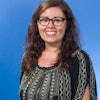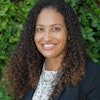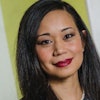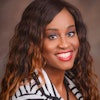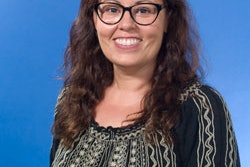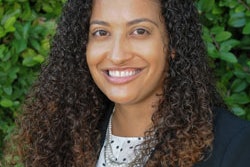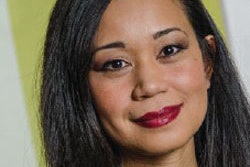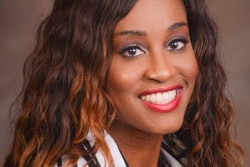Watching her father make repairs in her childhood home stirred Ala Qattawi’s fascination with fixable things and the mechanics of fixing them.
“I was always playing with his toolboxes. I knew I wanted to build my own things,” says Qattawi, a University of California, Merced assistant professor and the United States’ first female doctoral grad in automotive engineering.
“She’s a trailblazer and terrific role model. … She has an incredible future ahead of her,” says Dr. Imtiaz Haque, professor emeritus and founding chair of the automotive engineering department at Clemson University, where Qattawi earned a Ph.D.
Though she spent a year as a manufacturer’s process analyst, going into teaching, she says, was intentional. Particularly, now, she revels in being an instructor on a campus where almost 90 percent of students are of color and help comprise the greatest percentage of lowincome, first-generation students of any of the University of California system’s 10 outposts.
Of the females amongst those Merced co-eds, just a handful wind up in courses taught by Qattawi, who cuts a singular visage as a woman, Middle Easterner and hijab-wearing Muslim. In its own way, that also makes a statement about diversity — and the lack, thereof — in a field of collegiate study and an American job sector that remains overwhelmingly White and male.
“I’m a role model for male students,” says Qattawi, who was among the fi rst who joined Clemson University’s automotive engineering program. “And I encourage female students to speak up. I’ve noticed that, when students are working in teams, female students oft en let the males lead. But once you say to those young women, ‘Oh, you did a good job.’ … You watch them start to fl ourish.”
Witnessing such transformation, in turn, helps to shape Qattawi’s own teaching. She’s steadily tweaking and refi ning, she says. Th at includes trying to reach “an average teaching speed” in classrooms dotted by students who prefer a slower pace of engagement or an accelerated one or something midstream.
“It can be very diffi cult to get to that right average speed,” says Qattawi, calling herself perhaps, preternaturally, fast-moving. Students play a role in professors’ professional development, neophytes especially. “I learn as much as they learn,” she says. “And it’s not just about the fundamentals of teaching, it’s about how to handle the students, how to guide the students. Every time I teach the same course, I learn more. It is a much more complicated process than I thought it would be when I fi rst started.”
Her doctoral program was fabulous, but included no instruction on pedagogy, Qattawi says. To fi ll in the gaps, she attends UC Merced workshops on instructional techniques and reads much about teaching. She gauges student progress by their classroom attendance, homework assignments , ample quizzes, and letting them evaluate her mid-semester, too, not just at semester’s end.
She gives them extra points for asking questions during her outside-of-class office hours.
“You have to monitor yourself and monitor the learning for your students all along the way,” she says. “You can have very happy students and students who bluntly tell you what went right or wrong. I take all that feedback into consideration.” What also informs her teaching are her remembrances — where her English teacher, Mr. Fix-It dad, when she was 5, took her to the boys’ school where he taught while she sat in the front row. He was signifying that she could follow her preferred path and tear down walls.
“When I got to Clemson,” Qattawi says, “the engineering program was in a new building. … One of the staff told me I was the only female and that there were 160 male students. I said, ‘Oh, even in the U.S.’ … Hopefully, from one generation to another, we will continue to see more change.”
Title:Assistant Professor, Mechanical Engineering, University of California, Merced
Age:32
Tenured:No
Education:B.S., Jordan University of Science & Technology; Ph.D., Clemson University
Career mentors:Dr. Thomas Kurfess, Georgia Institute of Technology; Dr. Jian Sun, Rensselaer Polytechnic Institute
Words of wisdom/advice for new faculty members:
When facing a challenge, do not
just think about how to survive it. Instead, think how to get the most out of it.

